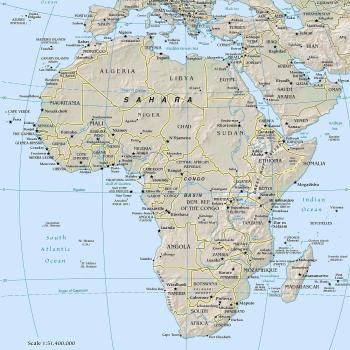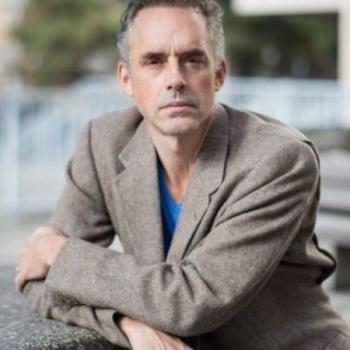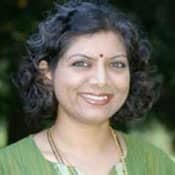The Hindu epic, the Mahabharata, is primarily the story of the great war fought between the two branches of a family—the Pandavas and the Kauravas. It highlights many great heroes and provides many teaching moments. One such hero is Abhimanyu, the son of Arjuna, the middle Pandava brother. I find in Abhimanyu's story an allegory for many everyday occurrences; it explains what happens when we do not learn about opposing perspectives to an issue.
This failure is exemplified by an upcoming panel titled Kashmir: The Case for Freedom, organized by the Asia Society, a "leading global and pan-Asian organization working to strengthen relationships and promote understanding among the people, leaders and institutions of the United States and Asia." Activist/author Arundhati Roy and writer Pankaj Mishra—two people who have consistently targeted the Indian government and the Indian army, and who have blithely ignored the ethnic cleansing of Hindus from Kashmir—have been invited by the Asia Society "to examine the right of self-determination of the Kashmiri people," and to present only one side of the Kashmiri Hindu story. Following such a path, we, like Abhimanyu, may arrive at a tragic ending.
While in the womb, Abhimanyu learned about the military formation known as a Padmavyuham—unfortunately, he only hears how to get in to this circular array of troops, but does not learn the way out. As he grew up, Abhimanyu learned the art of war and is much loved and admired. On the thirteenth day of the great battle where his father and uncles are defending the right to their share of the kingdom, his eldest uncle sent him into battle against an elder from the other side. The 16-year-old was asked because only he and his father knew how to break into the complex formation of the enemy lines. Abhimanyu's willingness to go into battle is obviously symbolic of his valor and humility, but for me it holds another dimension. If we only know the way in, we leave ourselves no way out. Abhimanyu's life ended on that day—once he entered the formation, he moved deeper and deeper in, and was completely lost.
As a Hindu in America, I often hear stories about Kashmir, Sri Lanka, and other parts of the world that are often one-sided and one dimensional. From scholars to elected officials to people on the street, there is a tendency to move deeper and deeper into a one-dimensional understanding of the complexity of relationships in areas where the broader Hindu community lives. Asia Society's panelists, like many others, focus on alleged abuses by the Indian army and ignores the realities on the ground in Kashmir: nearly 400,000 Hindus driven out of their ancestral homes, the violence orchestrated by paid agents of the Inter Services Intelligence (the ISI, Pakistan's intelligence agency), and the terrorist violence in the region carried out by radical Islamic groups based in Pakistan. The Indian state of Jammu and Kashmir has a democratically elected government with record voter turnout in the past few elections. While human rights violations have occurred in the region, a biased panel is a sure way to avoid solving the issues that still exist. After all, the right to vote comes after the Kashmiri Pandits' right to live in humanitarian conditions in their homeland, not in miserable refugee camps where the birth rate is lower than the death rate.
A recent Capitol Hill briefing on Kashmir featured Dr. Rahul Pandit, past president of the Indo-American Kashmir Forum; Lisa Curtis, Senior Research Fellow at Asia Studies Center of the Heritage Foundation; and Samir Kalra, Esq., Hindu American Foundation's Director and Senior Fellow for Human Rights. Pandit explained how the understanding of the plight of Kashmiri pandits is ignored or put on the back-burner because the primary concern of the Indian government seems to be of the Hindu-Muslim violence that may occur if the Pandits are sought to be rehabilitated. He comes from a family of Kashmiri Hindus, part of the Kashimiri pandit community. Since 1989, this group of Hindus has been ethnically cleansed and exiled from the region their ancestors called home for over five thousand years. Lisa Curtis highlighted the continuing Pakistan-sponsored terror attacks in India, rejecting the idea that they are simply motivated by the Hindu-Muslim unrest in India's Kashmir. The briefing reminded me and the many others attending that a more nuanced way of looking at the Kashmir situation is needed, to reduce the suffering of the Hindu community who are refugees in their own country, and curb cross-border terrorism that continues to keep the region volatile.
Considering more than one perspective is something that is also important in other faith traditions. In the New Living Translation of the Bible, the book of Romans (12:4) says, "Just as our bodies have many parts and each part has a special function . . ." recognizing the variety of opinions needed to create a just understanding of the world we live in. Just as we need all the organs of the body, we need different perspectives. The American public and policy makers will get lost if they don't know the other side of the story. The Asia Society, or anyone who seeks a balanced understanding of the issues to help create peace and stability in that region of the world, could learn an important lesson from the story of Abhimanyu: knowing the way out is just as important as knowing the way in.
11/2/2011 4:00:00 AM





